On April 15, Wisconsin Gov. Tony Evers (D) issued what are likely to be his final signatures and vetoes of the 2021-22 legislative session. With the Assembly and Senate standing adjourned as of their final floor days in February and March, respectively, any outstanding bills passed by both houses were sent to the governor’s desk automatically on April 14, pursuant to the Legislature’s session calendar. Since January 2021, Gov. Evers has signed 267 laws and issued 126 vetoes, eclipsing the previous single-session record of 90 vetoes set by Gov. Fred Zimmerman (R) in 1928, according to the Legislative Reference Bureau (LRB).
On April 8, Gov. Evers announced he had taken action on 78 bills, signing 35 into law and vetoing 43 others. Then, on April 15, Gov. Evers announced his decisions on the remaining 43 bills that passed both houses of the Legislature during the 2021-22 session. The governor signed 15 bills into law and issued 28 vetoes.
Notably, Gov. Evers signed Act 254 (originally SB 392) allowing the licensed practice of expanded function dental auxiliaries (EFDAs). Licensed EFDAs will be able to perform certain tasks related to dentistry and dental hygiene, such as assisting with restorations, taking impressions, and applying sealants and fluorides. Before passage, the Assembly amended the bill to remove “supragingival scaling” from the list of procedures EFDAs will be allowed to perform, addressing a concern raised by dental hygienists. Supporters of the policy contend it will lower the cost of dental care and promote access to dental care in underserved areas.
The governor vetoed SB 394, which would have created a new practice license for advanced practice registered nurses (APRNs) with four recognized roles. In his veto message, Gov. Evers wrote that he vetoed the bill “because I object to altering current licensure standards for APRNs, allowing practices functionally equivalent to those of physicians or potentially omitting physicians from a patient’s care altogether notwithstanding significant differences in required education, training, and experience.” While nursing groups and many legislators supported SB 394, the Wisconsin Medical Society and other physician groups opposed provisions allowing APRNs to practice independently of physicians.
Across both days in April, Gov. Evers vetoed dozens of bills containing Republican policy priorities that were not supported by Democratic legislators, including packages of election reform bills from each house as well as many bills related to K-12 and higher education. The governor also vetoed several bills to create or adjust crimes and penalties under state law.
Most of the bills signed by Gov. Evers on April 8 and 15 dealt with minor issues of state tax and business law, adjustments recommended by state agencies, and technical changes to the statutes such as removing obsolete language and aligning state law with federal law.
